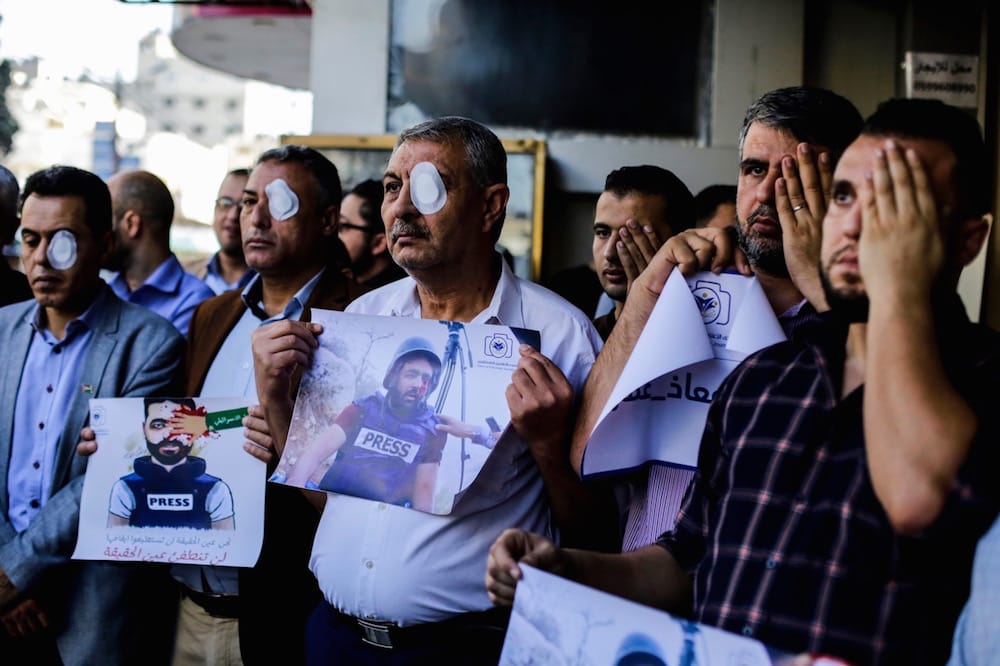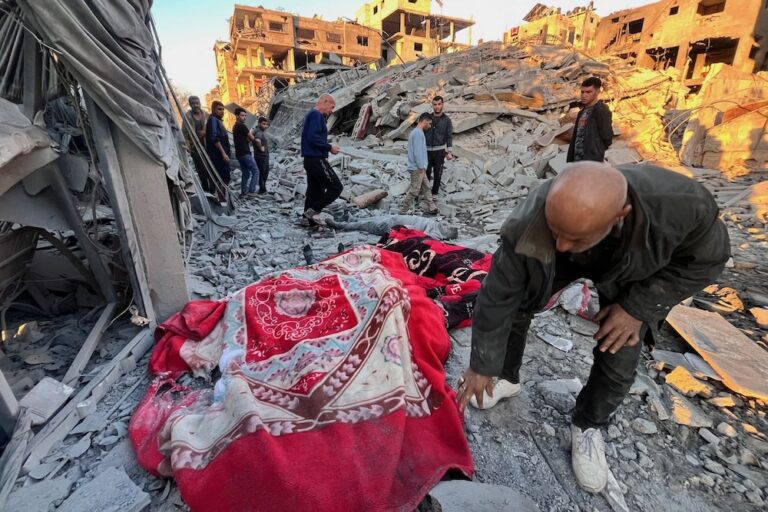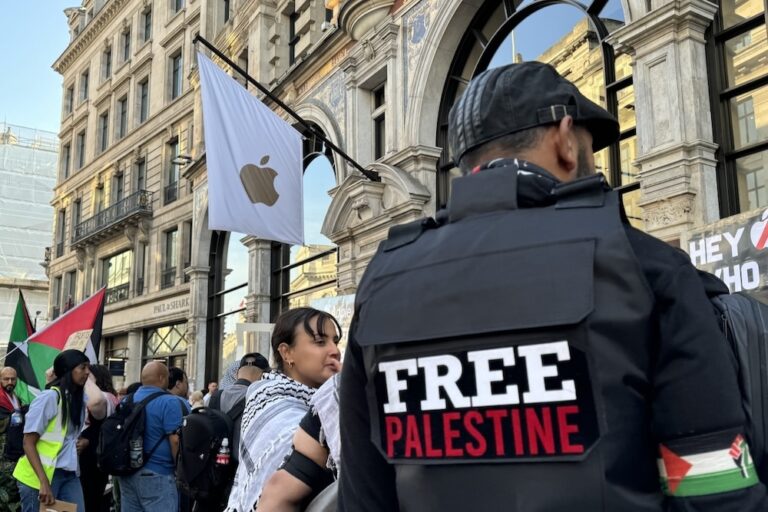Complaints submitted to the United Nations by the International Federation of Journalists and the Palestinian Journalists’ Syndicate allege that under a shroud of impunity, Israel has used lethal force in its systematic targeting of journalists working in Palestine, and failed to investigate killings of media workers.
This statement was originally published on ifj.org on 9 December 2020.
Israel’s systematic targeting of journalists working in Palestine and its failure to properly investigate killings of media workers are a violation of the right to life, freedom of expression and in breach of international law and may amount to war crimes, according to two complaints submitted to the United Nations today by the International Federation of Journalists (IFJ).
The complaints – submitted to Irene Khan, UN Special Rapporteur on freedom of expression and Agnès Callamard, Special Rapporteur on extrajudicial, summary or arbitrary executions – are made jointly with the Palestinian Journalists’ Syndicate (PJS) representing the victims and their families and were drafted by leading human rights lawyers at Doughty Street Chambers and allege systematic targeting, the use of excessive lethal force, discrimination and impunity.
The Special Rapporteurs will be asked to investigate the Israeli state’s actions over the 2018 killings of Ahmed Abu Hussein, and Yaser Murtaja and the maiming of Muath Amarneh in 2019 and Nedal Eshtayeh in 2015, both photographers who were shot by snipers in the eye in the first such complaint ever submitted by the IFJ.
According to the complaints the four cases highlighted are “emblematic of the systematic targeting by IDF personnel of journalists working in Palestine. This practice is contrary to international law and the IDF’s official rules of engagement which, according to the Israeli Supreme Court, permit the use of potentially lethal force only as a method of last resort and ‘in circumstances in which there is an actual danger to life or to bodily integrity’.
“Together with the systematic failure to investigate, the intentional use of lethal force and less-lethal force directed at the head resulting in serious, permanent injury, in circumstances where the individuals could be clearly identified as journalists constitute particularly grave violations of the right to life, and the freedom of expression, and show a flagrant disregard for the rule of law”.
The frequency of incidents in which journalists have been and are targeted with lethal or potentially lethal force also raises a real and serious concern of the existence of a formal or informal policy of targeting journalists and those who seek to document and cover protests against the Israeli occupation.
This targeting of journalists is part of a broader pattern of discrimination directed towards Palestinian journalists and PJS members, including in relation to press accreditation and to freedom of movement, which inhibits Palestinian journalists from being able to do their work documenting and reporting in the region, including on major events like the Great March protests, and creates an enabling environment in which journalists are placed at risk.
The complaints ask the Special Rapporteurs to take a series of actions to secure justice and accountability for the killing of Ahmed Abu Hussein and Yaser Murtaja, and maiming of Muath Amarneh and Nedal Eshtayeh. The complaints also ask the Special Rapporteurs to investigate discrimination and other systemic issues which hinder the ability of Palestinian journalists to do their work.
The IFJ and PJS have long documented violations of journalists’ rights in the Occupied Palestinian Territories. In 2019 the PJS documented 760 rights violations against journalists, including more than 200 cases of physical assaults, including dozens of injuries caused by rubber-coated steel bullets, and at least ten serious injuries by live ammunition.
The IFJ’s annual Killed List documents at least 33 Palestinian journalists killed since 1990.
IFJ General Secretary Anthony Bellanger said: “For years the world has documented and deplored the killing and maiming of Palestinian journalists by Israeli forces and the daily discrimination they face – denied rights, denied accreditation, denied freedom of movement and, as a result of a blanket impunity, denied justice. Words can no longer be enough. The UN must take action and show it will not stand idly by and allow impunity and injustice to continue unchallenged”.
PJS President Nasser Abubaker said: “We live daily with the systematic targeting, the impunity, watching soldiers kill our colleagues, blind those who document the occupation and the protests against it. No-one ever faces justice for their crimes against our colleagues. For them and the families they leave behind we believe these complaints are a fitting first step towards achieving justice for them and all Palestinian journalists”.



